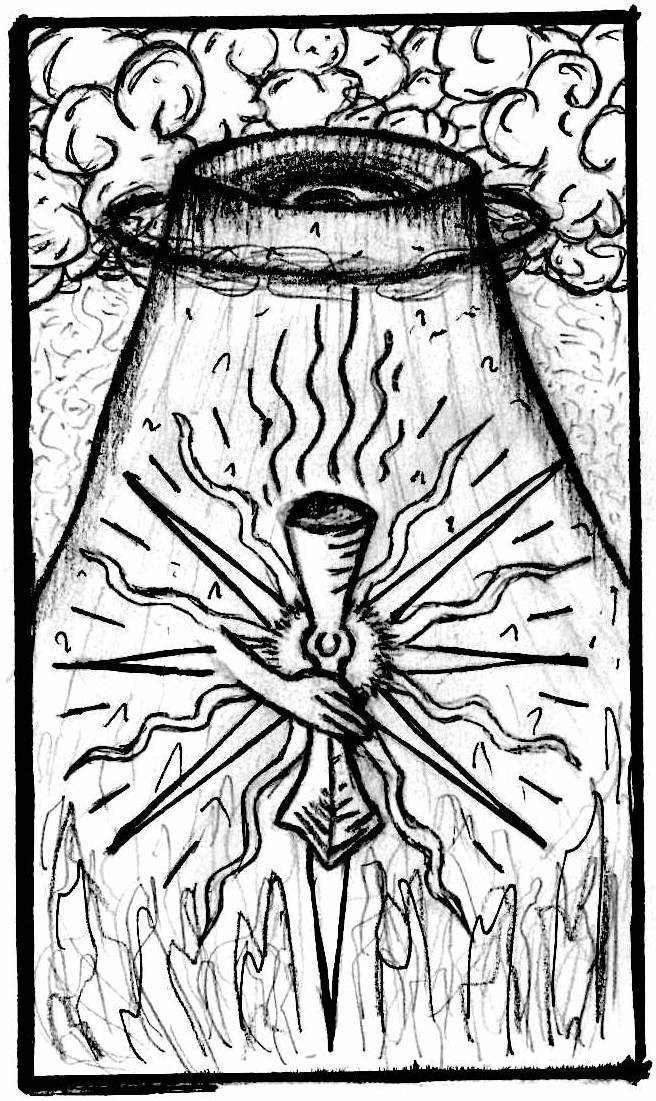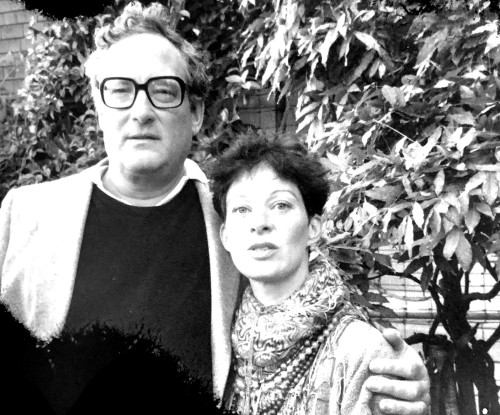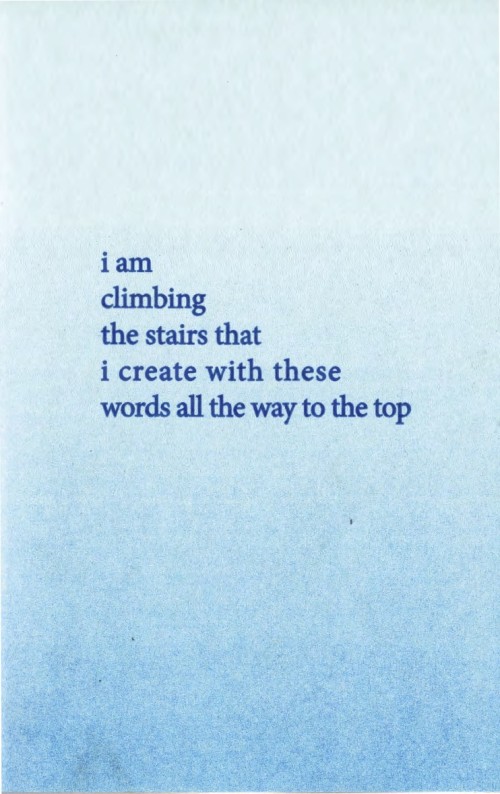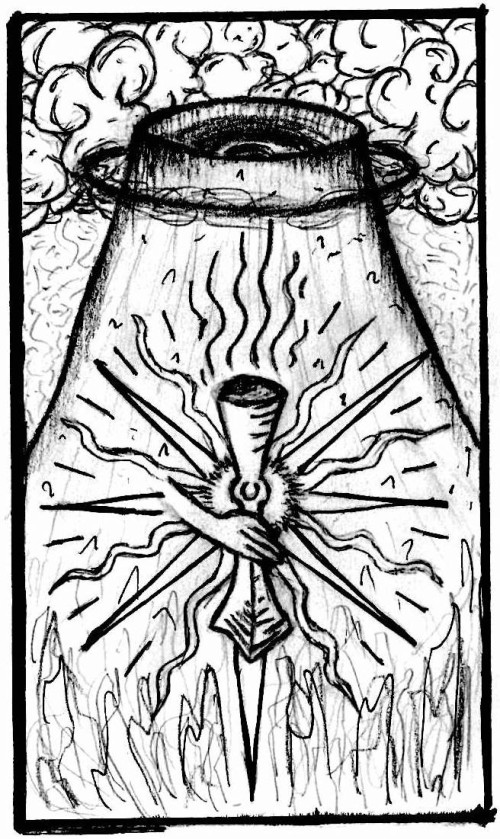On-screen, plumes rise high over a lake of fire, the center of which burns at thousands of degrees celsius. Two figures stand in view of the flaming mountain. Soon the smoke will reach them both, enveloping the pair in toxic gas. Their bodies will quickly reduce to ash like the area around them, becoming part of the landscape, the air above. They will leave nothing behind except some brief, darkly portentous footage & two sets of footprints, etched in the dead earth, standing side by side.
At a film festival, Cori & I catch a screening of Fire of Love, a new documentary about the married French volcanologists & filmmakers, Katia & Maurice Krafft. For over twenty years, the Kraffts travelled the world chasing volcanic eruptions, documenting the phenomena at remarkable—often perilously close—distances. The couple had visited over 300 active volcanoes until, while observing an eruption at Japan’s Mount Unzen in 1991, the Kraffts were caught in a cloud of volcanic ash, killing them instantly.
Despite the nature of the Kraffts’ deaths, Fire of Love is no tragedy. Instead, the film presents Katia & Maurice Kraffts’ life & work as the ultimate love story—a portrait of people devoting their lives to one another through a shared passion & following it to the ends of the earth. Particular attention is paid to the Kraffts’ awareness of risk, of the extremity of their lifestyle, of the likelihood that it would kill them both, eventually. With this understanding, the Kraffts—&, in turn, the film—are able to ascribe agency to their demise; Katia & Maurice having gone out together, living the lives they wanted, doing what they loved.
After the screening there’s a Q&A with the film’s director, Sara Dosa. What was it like working with primarily archival material? How closely related were the editing & writing processes? How did you decide upon narration as a vehicle for story-telling? Honk shoo…
Soon I come alight with a question of my own. I turn to Cori & whisper a request of assurance. When she affirms, I raise my hand & an usher approaches me with a wireless microphone. I ask what seems to me the most obvious question concerning the movie we all just watched: what has working on this film taught you about love?
There’s a laugh, a rustle of bemused film bros permeating the theater. But Dosa regards my question with sincerity. While maintaining constant—dare I say, burning—eye contact, the director explains that the film has taught her how to live & die with meaning. That through finding this sort of meaning, the Kraffts were able to head off into the distant unknown resolutely & with no regrets. In a sense, Dosa seems to suggest, to love you have to accept the inevitability of tragedy.
On November 15, 2020, Lewis Warsh passes away. Nearly two years later, following prolonged pandemic-related scheduling complications, I help run sound for his memorial at the Poetry Project. Over forty people read & perform in celebration of Lewis’s memory. The event is extremely lovely & lasts more than three hours. Toward the end of the ceremony, I hear Anne Waldman read a poem about love, about having outlived a lover.
“Let Go!”—Waldman’s tribute to Warsh, her first husband—is framed by a disagreement: when did the couple cofound their long-running magazine & small press, Angel Hair? Lewis thinks it happened in the car, driving who knows where, but Anne remembers it differently. She’s certain the pair started the magazine at the Berkeley Poetry Conference in 1965, the night they heard Robert Duncan read. The night they met, the night they fell in love.
Waldman connects the restless urgency of budding love to the generative, radical atmosphere of the Berkeley scene; “what I liked was being in this crowd of future, of poetry / Want to make together another reality now.” To her, the conference represents a pivotal moment of shared discovery. It had to be that night. To suggest that falling in love was anything less than world-making, anything other than the act of imagining & then building a better tomorrow, would defy good praxis & upset the cosmic order. “Poetry,” Waldman explains, “is so… mysterious!”
I particularly recognize the excitement Waldman describes. High off discovery, the promise of further discovery. I fall in love: I grow exuberant, I overthink things, I project tender instances into far flung futures ahead. I go on long, ambling walks, arms loose at my sides, hips swaying lightly like the effervescent protagonists of French New Wave. Suddenly I’m Zazie. I’m Jean Seberg. I’m Catherine Deneuve, who sings while spinning under yellow umbrellas. With friends, I mine excuses to talk about whoever I’ve fallen for. I make leading remarks like “I’m doing good—actually, I’m doing really good.” I reveal too much. I grow anxious. I preemptively provide confidants with the words of comfort I’ll need once things ultimately crumble. At home, I lose all sense of idleness, all impulse to scroll or dull the hours, all taste for the internet. I read more. I start exercising. Start writing sonnets. Writing long, winding paragraphs about love & excitement & managing expectations. I know what you’re thinking. I know it’s too early to tell but. I know it sounds insane but. I know I shouldn’t get my hopes up but. But what if it’s more?
While Dosa’s film likens love to a kind of higher purpose, Waldman’s poem contextualizes it within a larger, karmic understanding. The poet posits love as a series of actions & inactions that follow us throughout our lives. This notion is alluded to with a set of two timelines concerning an Allen Ginsberg reading at Berkeley: in one, we cross the bridge to hear Ginsberg read & thus have a seminal experience; in the other, we don’t cross the bridge, we miss Ginsberg, & we regret it for the rest of our days. What Waldman implies here is that the disappointment of the latter scenario is directly related to the impact of the former; both stem from a deep belief that the reading holds inherent personal meaning & that attending has the capacity to change us.
With this invocation, made while remembering a former lover, Waldman is able to reframe romantic regret as a positive, as something self-revelatory. Our actions & missed opportunities become two sides of the same deliberative coin, both of which are equally consistent with & reaffirming of our values. Through both, we better shape our future imaginary. We discover who we are, we learn “what we could do & did, what we didn’t couldn’t do / & how far we could go.”
If we view the Kraffts through this lens, we don’t see lives free from regret so much as ones informed by it. Every volcano visited or every eruption not captured on film. Every meal cooked atop scalding extrusive rock or quietly prepared in the French countryside. Family holidays fondly attended or quickly abandoned in favor of seismic activity. Babies born against backdrops of volcanic smog or not at all. Their lives, lived & unlived, overlap into a series of indexes, illuminating at its center Katia & Maurice Krafft, total & intentioned. Almost like fate.
I fall in love. I get a charley horse during sex. Old man. She remarks on the tightness of my calves. Shows me how to stretch. On your back, raise your leg, upright. Keep perfectly straight, then rotate at the hip. Now pull.
Anne Waldman falls in love. Listens to Lewis spill all the gossip—about Berkeley, about the Beats, about the conference, about Jack Spicer, who hated the Beats, who “wouldn’t be part of the conference & then he died.”
At the time of writing, my favorite Jack Spicer book is The Holy Grail. Spicer describes the titular cup—the mighty medieval MacGuffin, the famed metonymic object of heroic glory—as the “opposite of poetry / Fills us up instead of using us as a cup the dead drink from.” I don’t think it’s a stretch to say that the grail, of course, is love.
I fall in love. We grab drinks after work. Get drunk gossiping. Who’s fucking who? Who can’t we stand? Lazy knees knock underneath barroom counters. We talk about books. About the quickness with which we seemed to forget the things we read, no matter how much we adore them. We talk about always feelings like frauds.
In “The Book of Percival”—The Holy Grail’s second poetic sequence—Spicer opens with a pursuit. Percival, knight of King Arthur’s court, is stalked through the forest by a so-called Fool-killer. Though Percival is never struck down, he ventures in shadow of threat while the mark of “fool” dogs him throughout the tale’s seven poems.
I fall in love. The conversation naturally turns to art theft. Which museums to heist, what work to steal. I’d take a Turner, hang it in a dark, windowless room. Watch it glow. If she could, she’d snag an af Klint—there had just been a major exhibition of the artist’s work at a prominent New York museum named after a mining baron. Encouragingly, I note how easy it’d be to slip a smaller piece into a bag & just stroll right out. No, she clarifies, she’d have to have one af Klint’s large canvases, the sort that tower over visitors at the base of the museum.
It’s worth noting that in Arthurian literature, Percival is the first knight to quest for the grail. The original 12th-century verse, Perceval, the Story of the Grail, written by the French poet Chrétien de Troyes, has the eponymous knight find his prize entirely by accident. He arrives at the grail castle through happenstance, briefly glimpses the sacred cup in a ritual procession, & then just leaves. That’s it. Only later does Perceval learn that the grail could have been his had he simply asked for it—but who asks about a cup? The knight is rebuked: “Those who see their chance / But never grasp it, hoping / For a better, must suffer for their failure” (de Troyes, lines 4663-5). Perceval didn’t know he had it so good. Don’t it always seem to go?
I’m cohosting a reading at my friends’ bookshop just down the street from my apartment. I give her a flier I made—in collage a man clutches his forehead in agony, adjacent figures struggle in actioned sequence, a Martian beats a war drum, THRUB THRUB, & some poets are named. With light apology, she admits she has tickets for a show that night, but promises to swing by beforehand.
While the Perceval of yore’s foolishness results in a failure to aid his king, Spicer’s Percival can be read as a failure of love. In Spicer’s telling, the hero’s befuddlement extends to his entire quest. Percival doesn’t know what he’s doing, admits: “I am, sir, a knight. Puzzled / By the way things go toward me & in back of me.” All he can say for sure is that the path ahead is treacherous. “O, damn these things that try to maim me.” He knows the risks of his journey, but not the rewards.
I’m worried she’ll be late but she insists she can stay for just one drink. We sit on a wrinkled couch in the corner & I watch the bar disappear. Every ten minutes or so I remind her about the concert. It’s ok, really, I won’t be upset if you have to leave. It hasn’t started yet, she explains. They probably won’t begin on time. I can miss the sound check. I can miss the opener. The first couple songs.
Percival’s actions are motivated by the anticipation of pain. By steeling himself within “impossible armor,” the knight believes he will emerge from the forest unscathed. That he can withstand pain purely by predicting it. In seeking to soften the blow, Percival’s expectation becomes a kind of fearful resistance.
Eventually she excuses herself to use the restroom. The bar returns. A friend edges over to me & asks with a slight, teasing lilt if “something’s happening?” I shrug, smile just a little, then say nothing at all.
But the joke’s on him. In Percival’s resolve to play the fool, rather than allowing himself to simply be a fool—to brace for disappointment over being disappointed—he becomes more stooge than man. Unlike the Kraffts or Waldman, who are able to derive a sense of meaning from love’s pain, Percival becomes just a knight, “Fooled / Alive in its / Self.” Stuck in a sorry state that Spicer emphasizes by comparing his hero to Oz’s Tin Man—a walking suit of armor without possession of a heart.
When she sits back down she declares she’s too tired to go to the show after all. The tickets were free, she admits, she might as well stay for another drink. Are you sure?
It’s only in the final poem of the series that the knight at last finds the grail & spies something like redemption. Staring at the dish suspended in midair, Percival notes “the pain of [his] existence soothed”—here was a cup! Here was a goal worthy of heroic labors, a victory amounting glory, a death not met in vain. “A grail, a real grail.” All Percival has to do is reach for it, expose himself to the killer lurking between branches. Become like the cup, floating with “No visible means of support…like june-berries in October or something [he] had felt & forgotten”—but it’s already too late: de Troyes, or the poet’s patron, dies. The verse is left unfinished & Percival recedes from the narrative. Spicer echoes this history by leaving the knight in ambiguity, birds flying overhead, singing one word alone: fool.
Don’t it always seem to go: I just need a break. I don’t want to see you for a while. I’m getting back together with my ex. He came back “in a big way.” I have a boyfriend. He doesn’t know. There’s a global pandemic. My flight’s been cancelled. The borders are closing. You will never see me again. You will never see me again.
On-screen, a woman runs at a breakneck pace toward the camera, followed closely by a speeding van. Smoke climbs in the distance, growing nearer & nearer; she is running for her life. As the woman races by, we watch her mouth something & signal frantically into the lens before exiting out of frame. It doesn’t take us long to realize no one has stayed behind the camera.
To fall in love means embarking upon the certainty of pain. To resist pain, to resist disappointment, frustration, heartache, means resisting the totality of sensation love promises. Means denying the wisdom its pain informs & the lives to which it leads.
This is because all of love’s outcomes are inevitably difficult. Because love raises the stakes. Because love is the confluence of seismic pressure & tectonic movement that urges great fire from the depths of hell, out through our porous planet’s surface & into the sky at calamitous velocity—becoming an awesome, temporal fixture on the ashen horizon, beautiful to behold at a distance or when projected on-screen, but inside of which, no human being has ever survived long. Because for eons in its shadow, whole cultures have formed whose members live in simultaneous awe, reverence, & fear of its machinations, which—no matter how long we observe or how much we learn, no matter what insights are gleaned off cooled cores of igneous rock or what knowledge is fished from still pools of liquid sulfur—we will never fully master.
Anne Waldman, staring at past lives reflected in a mirror, notes “how we had passed through some ancient anxieties but it was important / That we were all still together changing.” This is because love is a reciprocity of revelation & regret. Because love is a cup of the dead that we, the living, drink from. A dish filled with the blood of a savior, promising us eternity. A chalice into which we pour our regrets & then, blithely, sip.
I think of Spicer: “If someone doesn’t fight me I’ll have to wear this armor / All of my life.” I think of Maurice Krafft, desiring a “kamikaze existence in the beauty of volcanic things.” Lives left lived & unlived aflame, turning to smoke. I write this sonnet:



